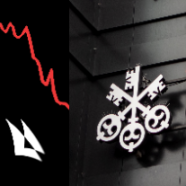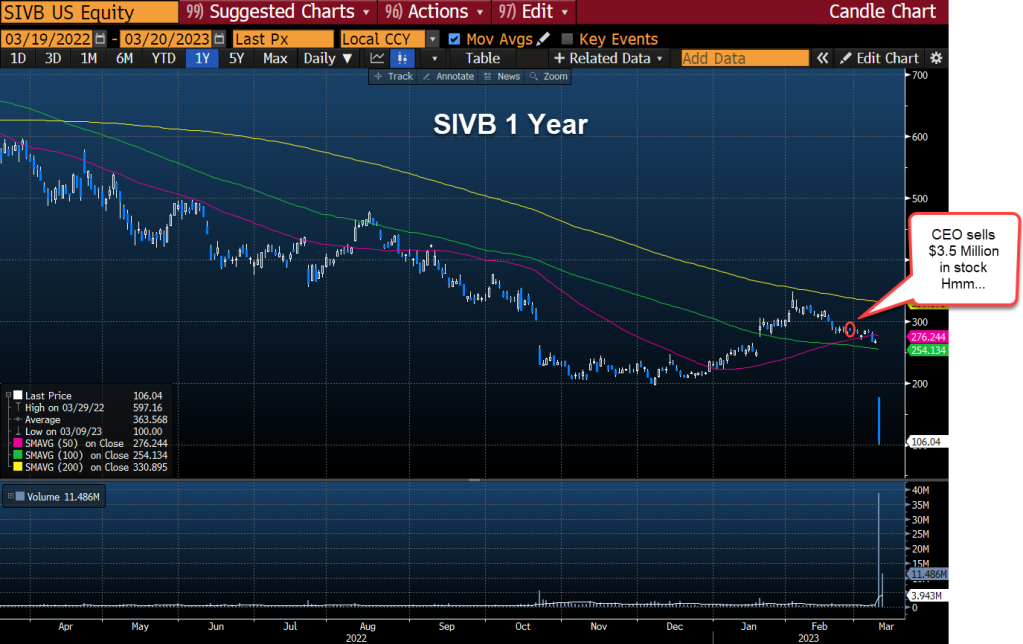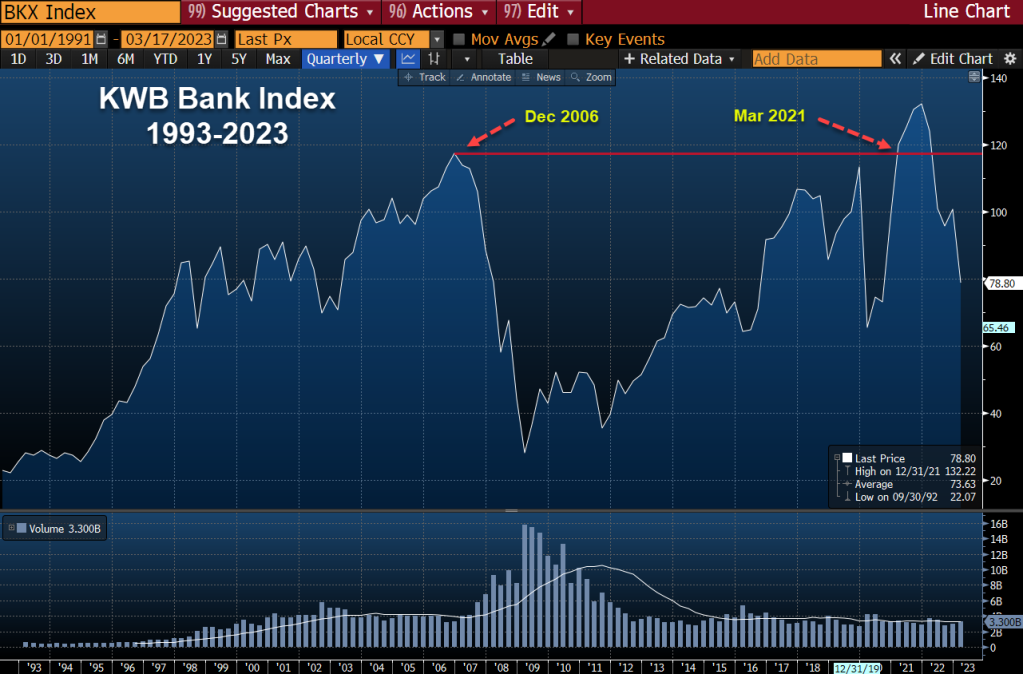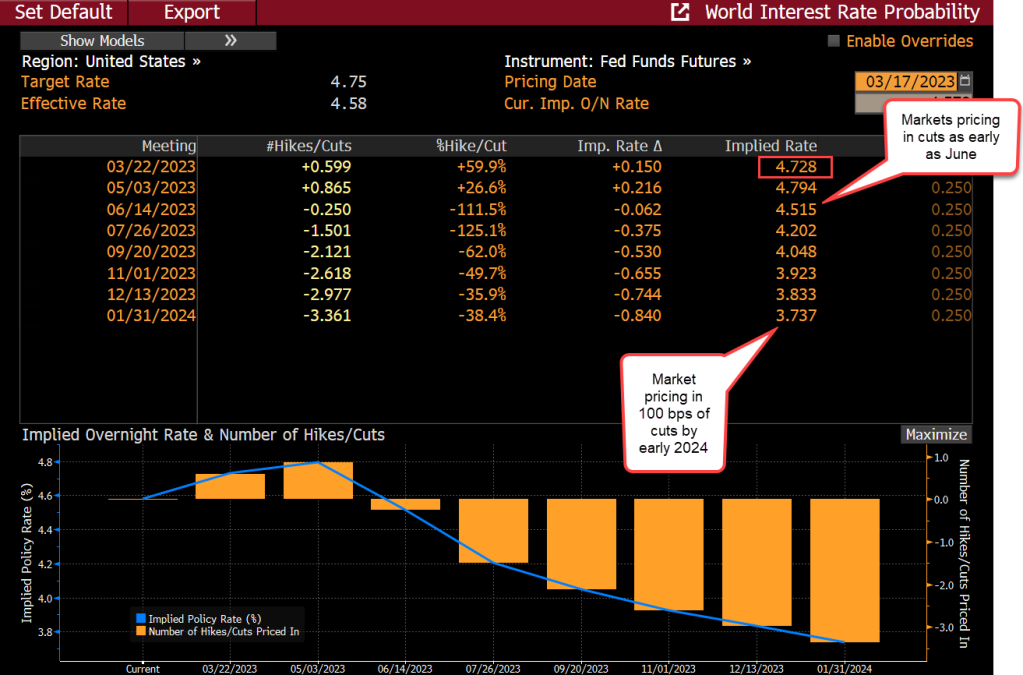 March
20
March
20
Tags
Shotgun Marriage – UBS Credit Suisse
 By David Nelson, CFA CMT
By David Nelson, CFA CMT
Swiss authorities had considered a full nationalization of Credit Suisse Group but it looks like UBS has agreed to an acquisition of the troubled institution at just over $3 billion. Unknown how forceful the persuasive argument was from Swiss authorities but it looks like they will shower UBS with enough liquidity to pull off the marriage. UBS will get a $100B liquidity line and a $9 billion backstop on some losses. I’ve had to change these figures several times so obviously the news cycle is very fluid and could change once again.

Similar action here as Bloomberg is reporting that New York Community Bancorp is pursuing a deal for failed Signature Bank. Just days earlier Investor Bill Ackman tweeted that Bank of America would acquire Signature.
Governments around the world are looking to contain the fallout from the wildfire started in Silicon Valley by supporting takeovers from public companies.
Liquidity
The Fed’s new back stop (Bank Term Funding Program) could add as much as $2 trillion in liquidity to help shore up deposits. Bloomberg reports that of the six banks with the highest ratio of uninsured deposits vs their total deposit base the estimate could be close to $460 billion.
Essentially the new Fed backstop gives banks with held to maturity securities deep under water from rising rates the ability to put those securities to the Fed at par or face value for a year giving them the funds needed to meet any redemptions. This of course helps banks avoid the earnings hit from a sale at a deep discount.
The question of course is what happens a year from now and aren’t we just kicking the can down the road? In all probability, with the stroke of a pen they could kick it for another year.
Monday morning quarterbacking is always easier than the real time decisions made by the players on the field. It’s easy to take pot shots and I’ve certainly been guilty of that game. I think if we are going to criticize and make suggestions on how to better manage the crisis, we have to confess our sins and admit where we were wrong.
Bless me father for I have sinned…
I was wrong in 2018 supporting the roll back in Dodd-Frank regulations for small and mid-sized banks. The reasons for the roll back were valid but today we are learning the CEO of a small bank can be just as stupid as their big bank cousins during the run up to the financial crisis.
While the bill was well-meaning, relieving smaller institutions of some of the very costly regulatory structure, if you get enough of them pushing the envelope it becomes a systemic nightmare.
In some ways the rollback was meant to keep the regional banking system competitive. Well, it worked. We can say a lot of things about Silicon Valley Bank but we can’t deny how fast they grew under the watchful eyes of California regulators and the Federal Reserve. That roll back in 2018 passed with bipartisan support 258-159 in the House.
Perhaps it isn’t the playbook that is flawed but the execution. It’s clear regulators and the Federal Reserve need to rethink how they monitor banks large and small. I manage money in real time and while I may not make perfect decisions, I at least know the risk I’m carrying overnight.
Are regulators doing their job or just cashing a paycheck? As pointed out last week by yours truly KPMG signed off on SVB days before they blew up. Did the California regulators actually look at the size of the balance sheet and interest rate risk SVB had taken on or did they just look at the KPMG report and say it must be ok? With more than 90% of SVB deposits uninsured, maybe a phone call to the CEO was in order.
Doesn’t really pass the smell test, does it?

Bloomberg Data
Of course, CEO Greg Becker may have been too busy talking to his broker. Greg sold $3.5 million in company stock on February 27th. Doesn’t really pass the smell test, does it?
Deflationary Pulse
It’s hard to believe the storm raging through the banking sector would have a silver lining but the deflationary pulse that will hit the economy can’t be denied. While recent falling yields point to an easing of financial conditions the reality is that they will tighten. Access to credit will be more difficult as banks take a step back. Over time economic conditions will slow helping do some of the Fed’s job for them.
The Fed’s new backstop will go a long way toward shoring up confidence in the regional banking system, but it doesn’t necessarily make the equity any more attractive. Some stocks will go up as the fear of bankruptcy subsides, but I suspect few will return to previous levels.
KBW Banking Index

Bloomberg Data
It took the KBW Bank Index (KBW) 14 years to recover from the depths of the financial crisis not exceeding the high-water mark until March 2021 and the run up to a market bubble in part fueled by massive liquidity pumped into the system by the Fed and Washington. The broad market was breaking to new highs as early as March 2013. Clearly the market economy has changed as banks become massively regulated institutions.
What markets say about Wednesday’s FOMC decision

Bloomberg Data
On deck this week is Wednesday’s FOMC decision. Current estimates still show a Fed expected to raise by 25 basis points with cuts as early as two months later. Obviously, the cuts don’t fit into recent rhetoric coming from the Fed or Jay Powell’s recent testimony to Congress. What a difference a week makes.
I’ll dive into that debate next week.